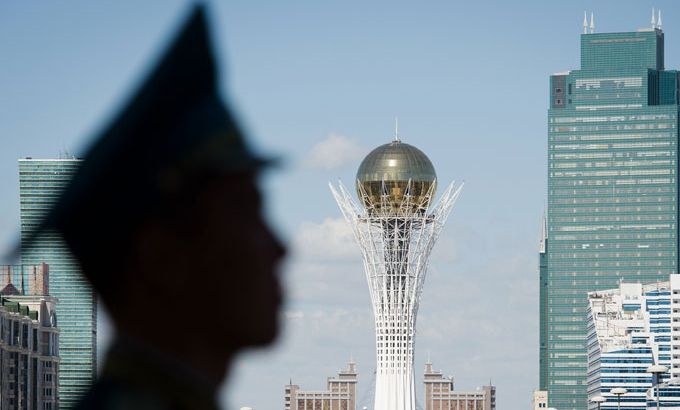
Kazakhstan’s Italian job
The deportation of a Kazakh dissident’s family has raised questions about Italy’s interests in the oil-rich nation.
A scandal has erupted over the deportation of the wife and the daughter of oligarch Mukhtar Ablyazov, a former Kazakh political prisoner and opponent of life-long President Nursaltan Nazarbayev, after a midnight police raid on their villa in a Rome suburb.
They were rounded up in the raid, accused of using a forged passport, and deported to Kazakhstan in less than 72 hours – despite holding valid permits to stay in the European Union.
Keep reading
list of 4 itemsUS House approves aid package worth billions for Ukraine, Israel
Will India’s election be free and fair?
Togo approves constitutional reform changing how president is elected
United Nations’ human rights experts have compared the operation to an “extraordinary rendition” or the abduction of US terrorism suspects to countries where they could be tortured.
The case has raised suspicions that the unusually swift expulsion of Ablyazov’s wife, Alma Shalabayeva and their six-year-old daughter Auna was ordered as a favour to energy-rich Kazakhstan, a key trade partner.
Ablyazov was a banker and the former Kazakh energy minister accused of embezzling $6bn from BTA Bank. He was granted political asylum in the UK after he fled Kazakhstan in 2009.
We speak to an Italian senator, Mario Giarrusso, and Ernesto Gregorio Valenti, a Vassalli Olivo e Associati lawyer, who is representing the family to assesss if there is something bigger in play.
Did Rome’s business ties with Astana aid the hasty deportation?
For now wind power will provide five percent of the country’s electricity demands but the government is developing the idea of an Asian Super Grid powered by renewable energy. It would connect Mongolia to the electricity systems of China, Japan and Korea, and could one day light up homes across the continent.
Meanwhile, in Detroit, the one-time symbol of American industrial power, has filed for bankruptcy.
The city which gave birth to the nation’s auto industry, is now the largest to take the action. If approved, it will force its creditors to resolve debts of more than $18bn – a process that could last years, and is likely to affect thousands of city workers.
The bankruptcy will give the city some protection from its creditors but it could mean layoffs, slashing union contracts and paying creditors pennies on the dollar. In the short term, that is only likely to increase the anguish in the Motor City.
We are also looking at ‘peak defence‘: ‘Peak oil’ is the point where oil extraction reaches it peak, and production can only decline after that. ‘Peak defence’ takes the same theory to military spending arguing that the West’s dominance in that area has hit its peak, and that other countries will now dominate.
Who will be dominating the land, sea and air in the not too distant future?
Watch each week at the following times GMT: Friday: 2230; Saturday: 0930; Sunday: 0330; Monday: 1630. Click here for more Counting the Cost. Follow Kamahl Santamaria @KamahlAJE and business editor Abid Ali@abidoliverali |
